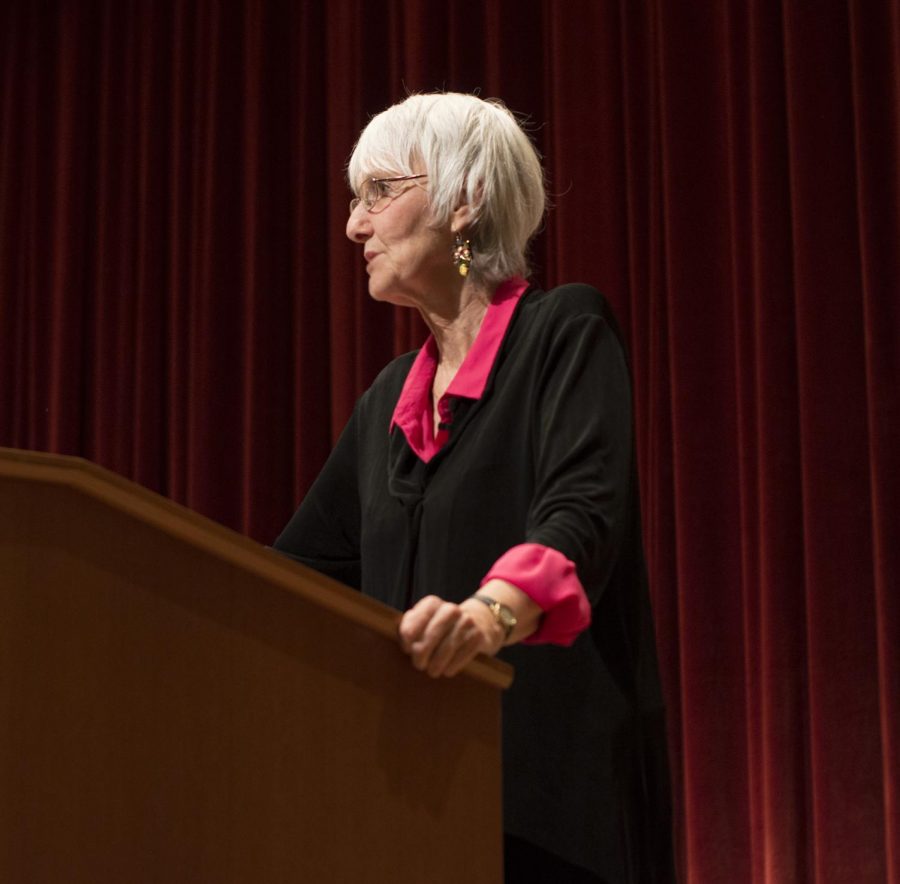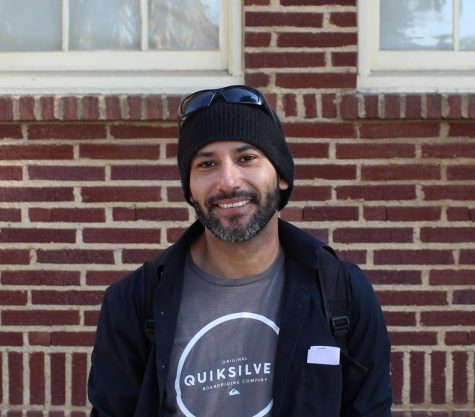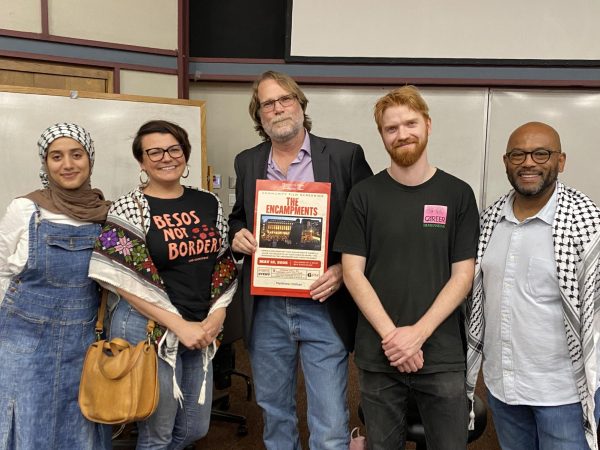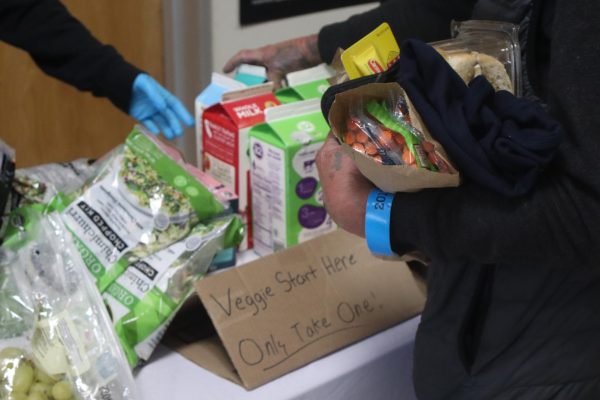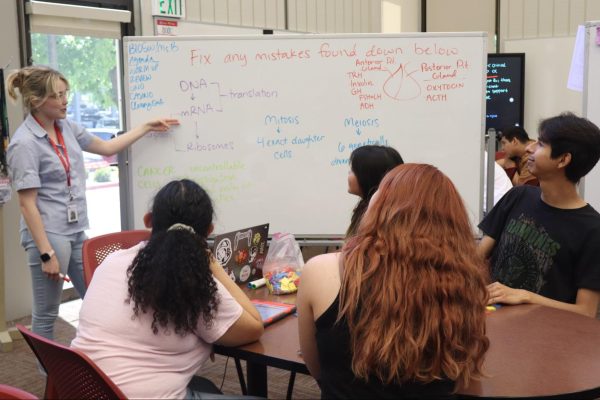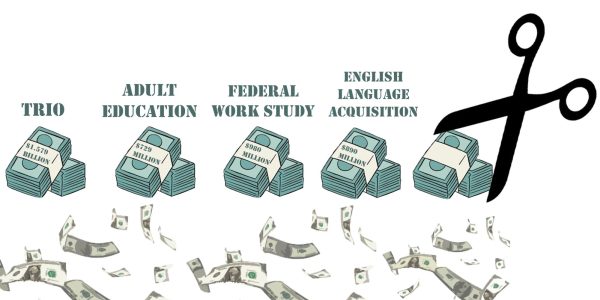Talk Less, Listen More, Columbine Shooter’s Mom Urges
Photo by: Angel de Jesus Jr.
Sue Klebold speaks about her book “A Mothers Reckoning” in the OAB auditorium on Feb. 13 to raise awareness for suicide prevention.
The mother of one of the perpetrators of Columbine, one of the deadliest school shootings, told a packed auditorium of Fresno City College students and staff why this tragedy occurred and how it might have been prevented.
Sue Klebold spoke about her book “A Mother’s Reckoning; Living in the Aftermath of Tragedy,” describing her life in the days before, during, and after her son Dylan Klebold and his friend Eric Harris killed 13 fellow students and injured 20 more in Littleton Colorado on April 20, 1999.
“I could not believe that day, that Dylan, purposely would hurt anyone else,” she said. “That whole day, I kept thinking this has to be some mistake, that this was a prank gone wrong. I was seriously confused.”
Klebold described her son as a gifted, cheerful and well behaved boy, and she believed he was just an average teenager on his way to a respectful college. She had seen no signs of the events that would change the lives of so many across the country.
She recalled only one encounter with law enforcement that could have sent her son into a state of depression, probably leading to his decision to commit those atrocities on that fateful day and eventually commit suicide.
“When life comes so easily for us, and things start to break down, all of a sudden we are struggling,” Klebold said, describing what may have happened to her son. “[This is] especially true for those people who become quickly incapacitated, and they don’t know what to do.”
Klebold said, “they [Dylan and Eric] have grown up to be self reliant and everything should be easy, and then their world starts to crumble, and they don’t know what to do, how to handle it, and don’t know how to act.”
She tried to intervene and encouraged her son to seek counseling, but that encounter was dismissed as a simple mistake that could have been made by any teenager his age.
That encounter she believed, plunged her son into a state of depression, but did not cause her to be concerned because he seemed to be on the road to recovery, and she actually believed he was doing incredibly well in his progress.
Klebold recalls her concern for her child as that of any other mother’s. She did not see anything to be alarmed about. When the events began to unfold, she was in a state of shock and disbelief, unaware her son would be capable of being responsible for such a tragedy.
She searched over and over, trying to figure out what she could have done differently as a mother, trying to figure out the one event she believed could have changed everything.
Klebold described the need for mental health awareness among communities and how so many people who need care are ignored. She described the relationships formed among her and the parents of victims, and the need for awareness, to prevent such events in the future.
Not long after those events, a report was published by the Secret Service, estimating that 78 percent of school shooters were suicidal.
“He had intended to die,” Klebold recalls after receiving a report from the sheriff’s department detailing the investigation. “He knew he was going to die.”
She became involved in suicide prevention when she learned about the correlation between mass shooters and suicides.
“If we can stop them along this path, then those who shoot other people can be reduced,” she said.
“When I look back at that had happened and all the opportunities I had to talk to speak with my son, I kept trying to look for that one ‘a-ha’ moment where we said or did the wrong thing,” Klebold said.
She shares her story because she wishes she had talked less and listened more. “When people are suffering, they need us to listen, they need to talk about what they are feeling,” she said.
Klebold’s book has been translated to many languages and distributed around the world, as a message to those in need, touching lives as it goes. Klebold has dedicated all profits of her book to advocating for suicide prevention and mental health awareness.
“As parents, our first instinct when a child comes to you, is discount their feelings, and we have to all learn to talk differently to each other,” Klebold said. “I wish I had said only one thing, ‘tell me more about that.’”

